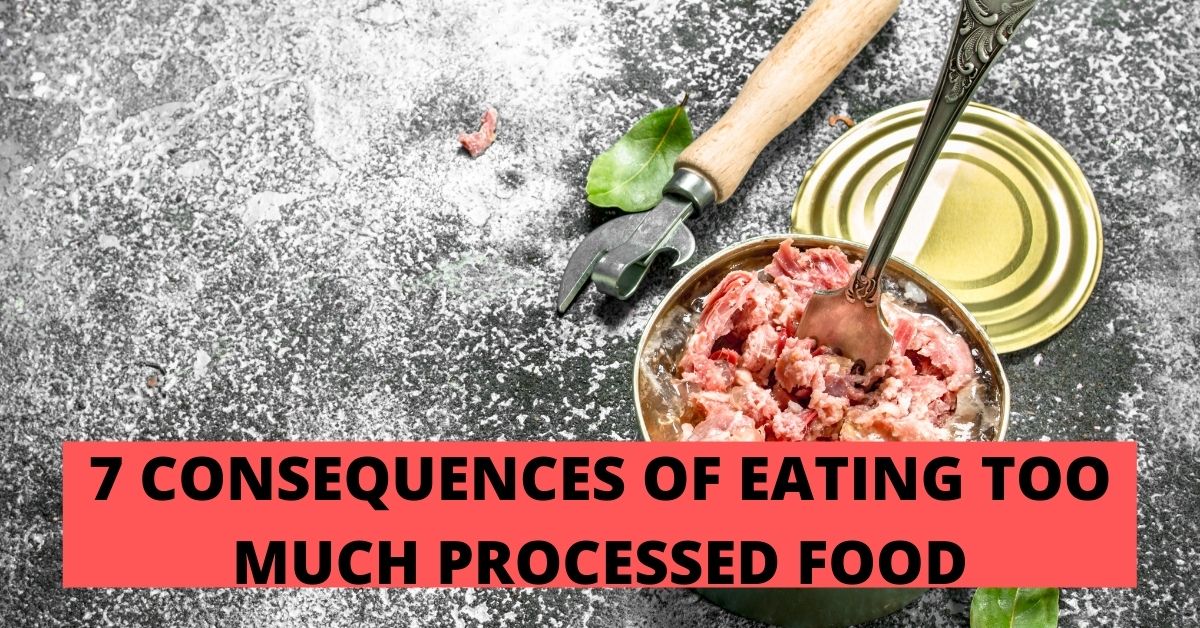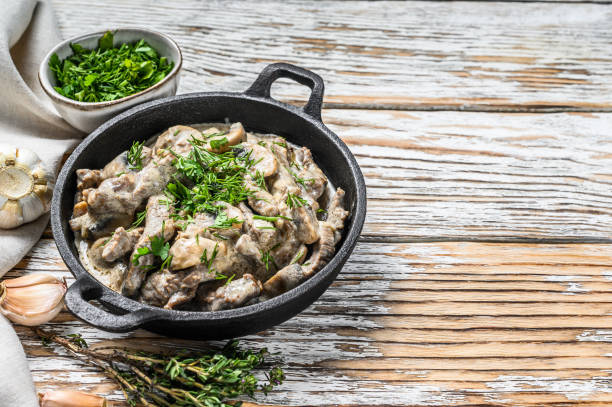This post contains affiliate links. This means I will make a commission at no extra cost to you should you click through and make a purchase. Read the full disclosure here.
Do you eat a lot of processed food? If so, there are 7 negative health consequences that may be affecting your health. Processed foods can cause cardiovascular disease, diabetes, high blood pressure, cancer and put excessive strain on your liver.
The best way to avoid these 7 problems is to eat natural foods as much as possible!
Here’s what happens when we eat too many processed foods:
Table of Contents
1) HIGH BLOOD PRESSURE
Consuming excess sodium raises blood pressure. Most processed food contains about 10x more sodium than fresh whole foods.
2) DIABETES
Eating too many empty calories causes insulin resistance which in turn leads to Type II Diabetes. It also contributes to heart disease, blindness and nerve damage because sugar damages every cell in our body. Sugar cravings can also lead to binge eating and other compulsive behaviors.
3) PREMATURE AGING
When people switch from an unhealthy diet filled with junk food to a healthy diet consisting mainly of whole foods they often experience rapid weight loss.
4) TOXIC OVERLOAD ON THE LIVER
Your liver filters out toxins so if it becomes overworked it will affect its ability to clear out chemicals such as alcohol, toxins, drugs etc. This will result in fat build up around liver cells.
5) INCREASED RISK OF CANCER
Cancer cells thrive off sugar, low-fiber diets and animal products but not plant-based foods. So reducing meat and dairy consumption reduces your risk of colon, breast, prostate and lung cancers.
6) SUGAR CRAVINGS
Naturally occurring sugars like those found in fruit have a different effect on our brain than refined sugars do. Natural sugars help us produce serotonin which makes us feel happy.
Refined sugars decrease serotonin levels instead causing us to crave even more sweets. It doesn’t make sense to ban all sugar from your diet but it does make sense to cut back by half or more.
7) HEART DISEASE
Large amounts of processed foods increase bad cholesterol levels leading to increased risk of heart disease.
They also lower good cholesterol which transports bad cholesterol away, thereby increasing your chance of a stroke or heart attack.





